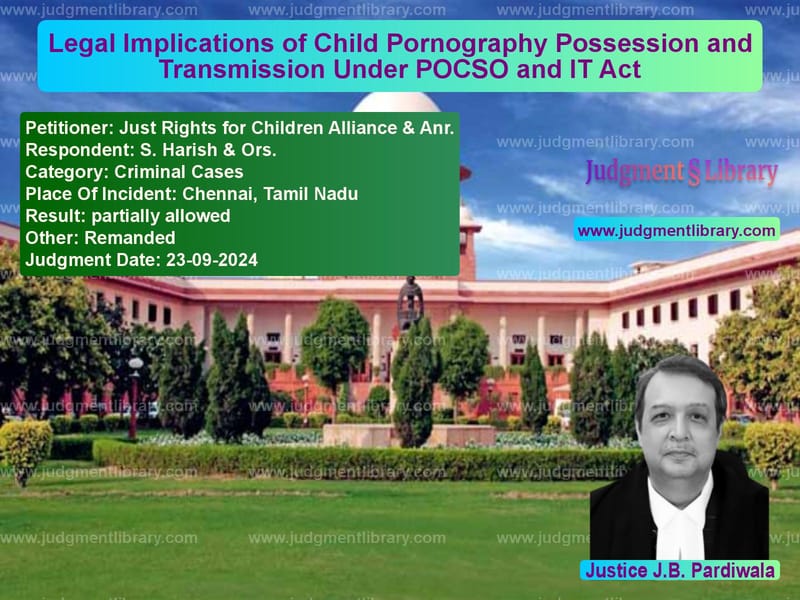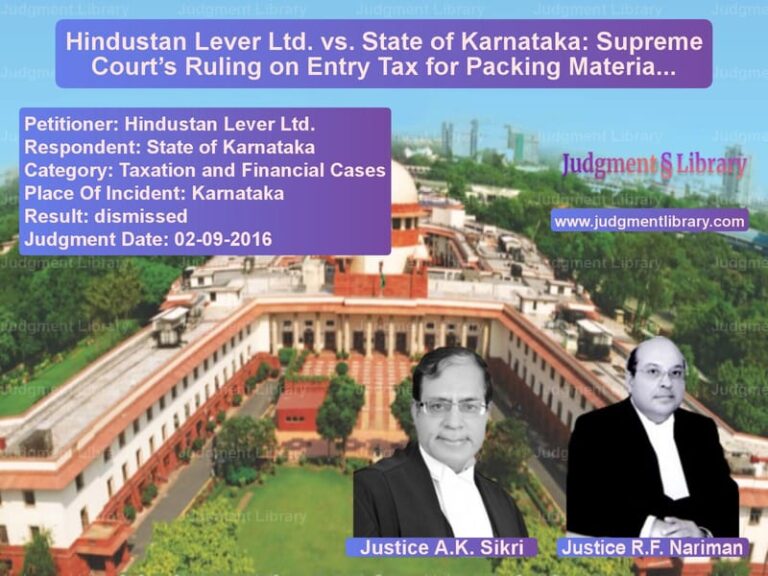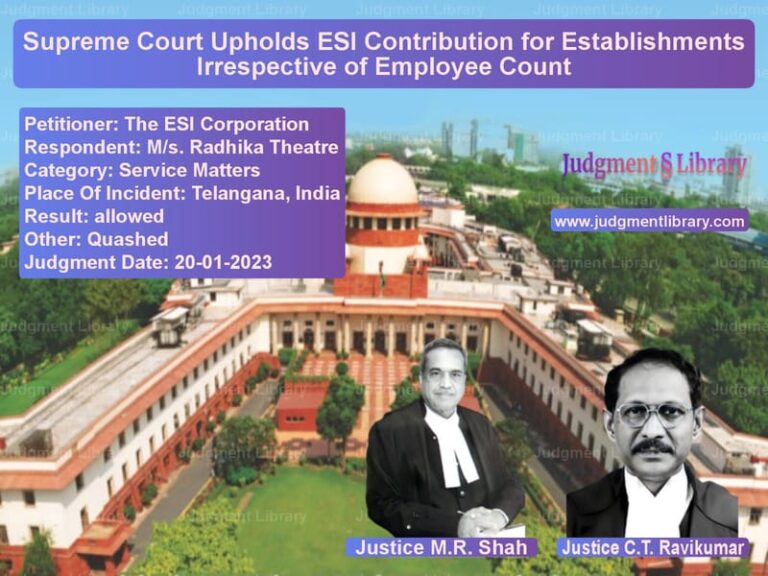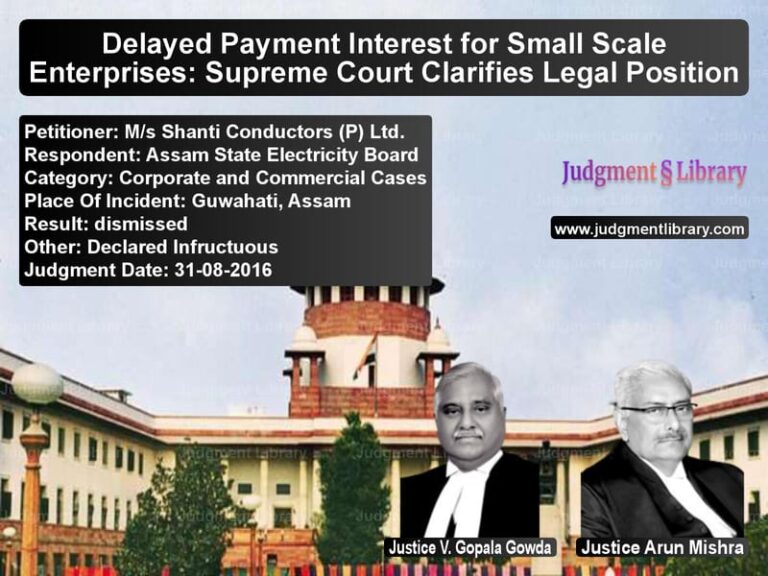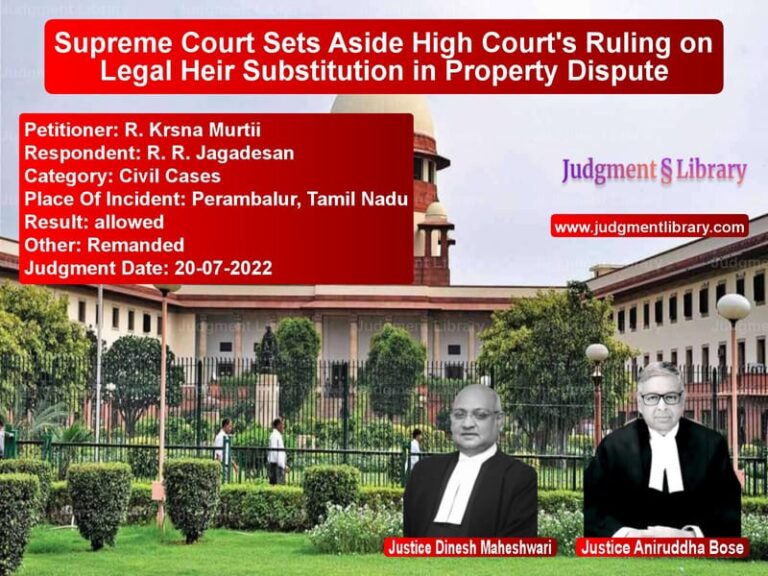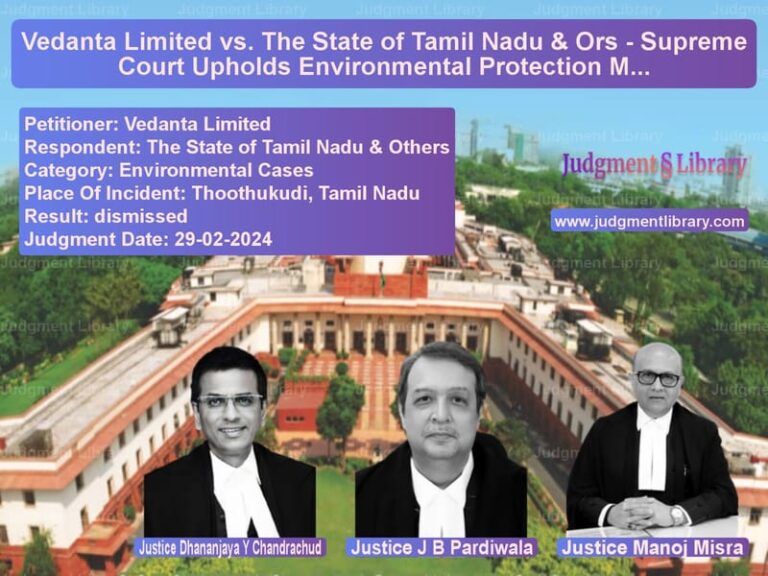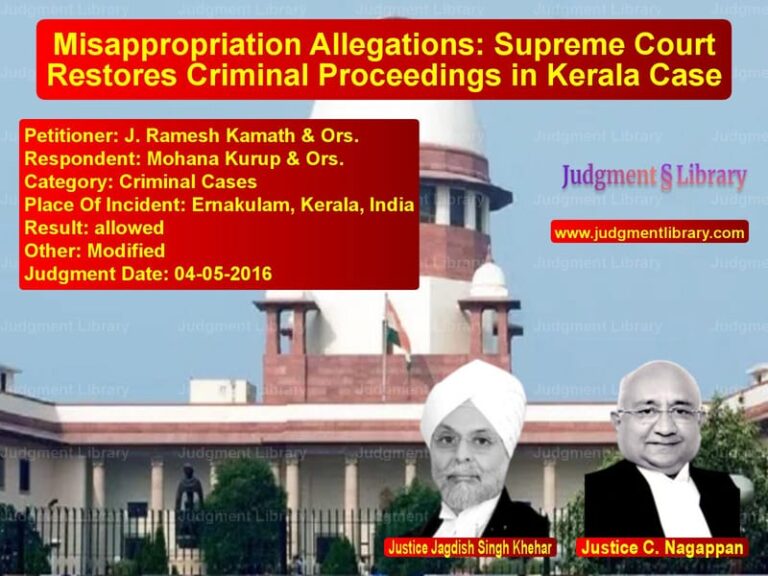Legal Implications of Child Pornography Possession and Transmission Under POCSO and IT Act
The case of Just Rights for Children Alliance & Anr. vs. S. Harish & Ors. presents crucial legal questions regarding the possession and transmission of child pornography under Indian law. The Supreme Court was called upon to determine whether the mere possession of child sexual abuse material (CSAM) constitutes an offense under the Protection of Children from Sexual Offences Act (POCSO) and the Information Technology (IT) Act.
The case emerged after a cyber tipline report identified the respondent, Harish, as having downloaded and stored CSAM on his electronic device. The prosecution charged him under Section 67B of the IT Act and Section 15(1) of the POCSO Act. The Madras High Court, however, quashed the criminal proceedings, holding that mere possession, without intent to share or transmit, does not constitute an offense.
Background of the Case
The case originated from a report received by Indian law enforcement from an international cybercrime monitoring organization. The report flagged the respondent’s IP address as linked to CSAM downloads. A search warrant was executed, leading to the seizure of electronic devices containing multiple explicit images and videos of minors.
The prosecution charged Harish under:
- Section 67B of the IT Act – which prohibits the publishing, browsing, or transmission of sexually explicit material depicting children.
- Section 15(1) of the POCSO Act – which criminalizes the storage of CSAM for the purpose of transmission or distribution.
During the trial, the respondent argued that the materials were downloaded automatically through peer-to-peer networks and that he had no intent to distribute them.
Key Legal Issues
- Does Section 15 of POCSO criminalize mere possession of CSAM, or does it require intent to transmit?
- What constitutes an offense under Section 67B of the IT Act?
- Does the principle of presumption under Section 30 of POCSO apply at the stage of quashing proceedings?
Arguments by the Appellants
The prosecution, supported by child rights organizations, argued that:
- The legislative intent behind Section 15 of POCSO is to prevent the circulation of CSAM. Possession itself, even without actual distribution, should be criminalized.
- The High Court erred in ruling that the offense required actual transmission.
- Section 67B of the IT Act is broadly worded to include not just publishing but also viewing and browsing such content.
- The accused failed to delete the illegal material, violating the responsibility imposed under POCSO.
Arguments by the Respondents
The respondent’s counsel countered:
- There was no intent to transmit or distribute CSAM.
- The material was downloaded without his knowledge, likely through an auto-download feature in a file-sharing network.
- Criminalizing mere possession, without proof of intent, would violate the principle of mens rea (guilty mind).
Supreme Court’s Observations
1. Legislative Intent of POCSO
The Court noted that POCSO was enacted to comprehensively address child exploitation:
“The POCSO Act must be interpreted in light of its objective—to protect children from all forms of sexual exploitation. Mere possession of CSAM, if done with an intent to transmit or distribute, falls squarely within the ambit of Section 15.”
2. Role of Section 67B of the IT Act
The Court rejected the argument that merely viewing CSAM is not an offense. It observed:
“Section 67B explicitly covers browsing, collecting, and storing CSAM. Whether or not the accused distributed it is irrelevant.”
3. Presumption of Guilt Under Section 30 of POCSO
The Court reaffirmed that POCSO includes a presumption of guilt for offenses related to CSAM possession:
“The burden of proof shifts to the accused once possession is established. The onus is on the defendant to prove that the material was stored inadvertently.”
4. High Court’s Error in Quashing the Case
The Court found that the High Court had erred in prematurely quashing the charges:
“The High Court should not have interfered at the investigation stage. The matter requires trial scrutiny to determine intent.”
Final Judgment
The Supreme Court set aside the High Court’s ruling and restored the criminal case against the respondent:
“The High Court’s order quashing the criminal proceedings is reversed. The case is remanded for further proceedings in accordance with law.”
Implications of the Judgment
The ruling has significant implications for the interpretation of cyber laws concerning child safety:
- Possession of CSAM can be penalized if intent to distribute is inferred.
- Section 67B of the IT Act applies broadly, covering even mere browsing.
- Courts should not quash such cases prematurely without trial-level scrutiny.
This judgment strengthens the legal framework for tackling online child exploitation and establishes important legal principles regarding digital evidence and liability.
Petitioner Name: Just Rights for Children Alliance & Anr..Respondent Name: S. Harish & Ors..Judgment By: Justice J.B. Pardiwala.Place Of Incident: Chennai, Tamil Nadu.Judgment Date: 23-09-2024.
Don’t miss out on the full details! Download the complete judgment in PDF format below and gain valuable insights instantly!
Download Judgment: just-rights-for-chil-vs-s.-harish-&-ors.-supreme-court-of-india-judgment-dated-23-09-2024.pdf
Directly Download Judgment: Directly download this Judgment
See all petitions in Cyber Crimes
See all petitions in Juvenile Justice
See all petitions in Legal Malpractice
See all petitions in Judgment by J.B. Pardiwala
See all petitions in partially allowed
See all petitions in Remanded
See all petitions in supreme court of India judgments September 2024
See all petitions in 2024 judgments
See all posts in Criminal Cases Category
See all allowed petitions in Criminal Cases Category
See all Dismissed petitions in Criminal Cases Category
See all partially allowed petitions in Criminal Cases Category

